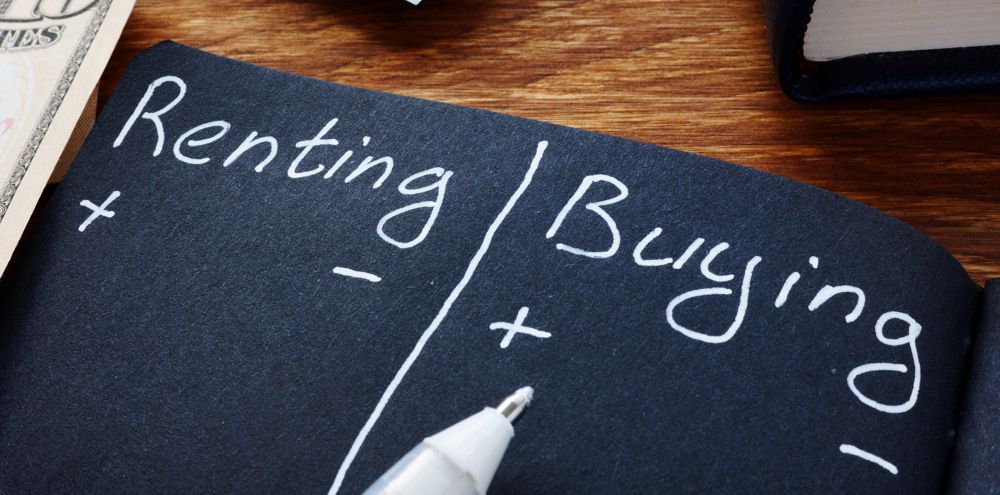Deciding whether to rent or buy a home is one of the most significant financial choices you’ll make. Each option has its advantages and challenges, and the best choice depends on your financial situation, lifestyle, and long-term goals. Let’s break the advantages and disadvantages down to help you make an informed decision.
Advantages of Renting:
- Lower Upfront Costs – Renting typically requires a security deposit and first month’s rent, whereas buying involves a down payment, closing costs, and other expenses.
- Less Maintenance Responsibility – Landlords handle repairs and maintenance, reducing unexpected costs for renters.
- Flexibility – If you’re unsure about settling in one location or have a job that requires frequent moves, renting allows for easier relocation.
- No Market Risk – Renters don’t have to worry about housing market fluctuations or losing property value.
Disadvantages of Renting:
- No Equity Building – Monthly rent payments go to a landlord rather than building ownership wealth.
- Potential Rent Increases – Landlords can increase rent over time, making long-term budgeting unpredictable.
- Limited Personalization – Many rental agreements restrict renovations or modifications to the property.
Advantages of Buying:
- Building Equity – Each mortgage payment contributes toward ownership, helping build long-term financial wealth.
- Stability and Control – Homeownership provides stability, allowing you to personalize your space and avoid sudden rent hikes.
- Potential Tax Benefits – Homeowners may qualify for tax deductions on mortgage interest and property taxes (varies by location).
- Appreciation Potential – Over time, real estate often increases in value, potentially providing a profitable return on investment.
Disadvantages of Buying:
- Higher Upfront Costs – Down payments, closing costs, and property inspections make buying more expensive initially.
- Ongoing Maintenance Expenses – Homeowners are responsible for repairs, landscaping, and maintenance.
- Market Risks – Housing values can fluctuate, potentially impacting resale value.
- Long-Term Commitment – Selling a home takes time and may involve additional costs like real estate agent fees and closing costs.
If you’re considering buying a home but aren’t sure where to start, PJ Homes can help you navigate the process. Our experts provide guidance on financing, property selection, and market trends to ensure you make the right decision. Ready to explore homeownership? Contact PJ Homes today to start your journey!

